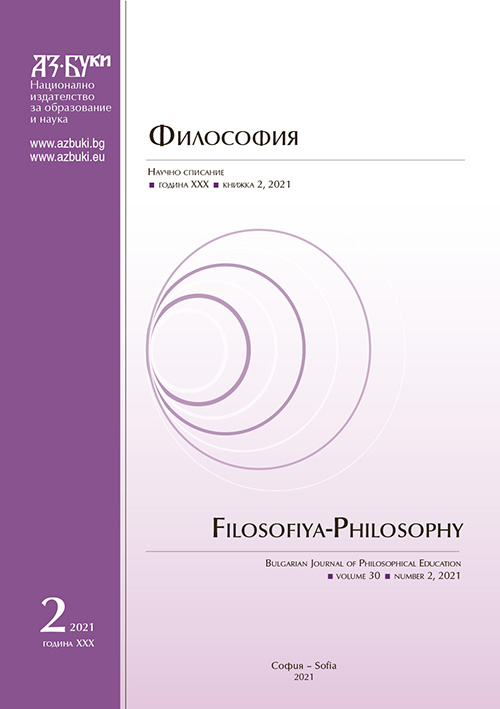Embodied Rationality as a Mode of the Visibility of Ethics
Embodied Rationality as a Mode of the Visibility of Ethics
(To the Question of the Toolkit of Constructivism)
Author(s): Olga Dolska, Viktoria LobasSubject(s): Philosophy, Social Sciences, Education, Psychology, History of Philosophy, Philosophical Traditions, Epistemology, Ethics / Practical Philosophy, Social Philosophy, Special Branches of Philosophy, Contemporary Philosophy, Structuralism and Post-Structuralism, Philosophy of Mind, Vocational Education, Adult Education, State/Government and Education, Cognitive Psychology, Psychology of Self, Phenomenology, Hermeneutics, Inclusive Education / Inclusion
Published by: Национално издателство за образование и наука „Аз-буки“
Keywords: body; embodied rationality; ethics; constructivism; epistemology
Summary/Abstract: Emphasizing a keen interest in the corporeal/bodily in its dynamics and its cognitive characteristics, the authors show that the appeal to the corporeal as a cognitive option changes the understanding and perception of such traditional phenomena as the world, reality, space, things. The proposition that the subject constructs the world, and our bodily experience is determined by the word and constructed by discursive contexts, looks incomplete: its limited nature requires some additions. The authors underline that the study of human sensual cognitive capabilities and the analysis of the cognitive map of the bodily forces us to pay attention to embodied rationality. Addressing it allows us to overcome constructivism, focused exclusively on the discourse of the word, because our intelligence was also shaped in accordance with the form of body action. The authors turned to the problem of mode the visibility of ethics and posed a provocative question as follows: can the cognitive abilities of the bodily act as a basis for ‘construction the morality’ and occupy n equal position with verbal discourse? To solve this problem, the authors analyzed relevant scientific findings and their influence on the nature of the development of constructivist epistemology, studied the debate on the issue of ethics taking place among the representatives of constructivism, and, in particular, analyzed discussions on tools of the constructivism. At present, all ideas and works of constructivism must take into account bodily rationality as their obligatory component (in its general instrumental and methodological basis), and bodily rationality can serve as the basis for “constructing morality.”
Journal: Философия
- Issue Year: 30/2021
- Issue No: 2
- Page Range: 126-138
- Page Count: 13
- Language: English
- Content File-PDF

